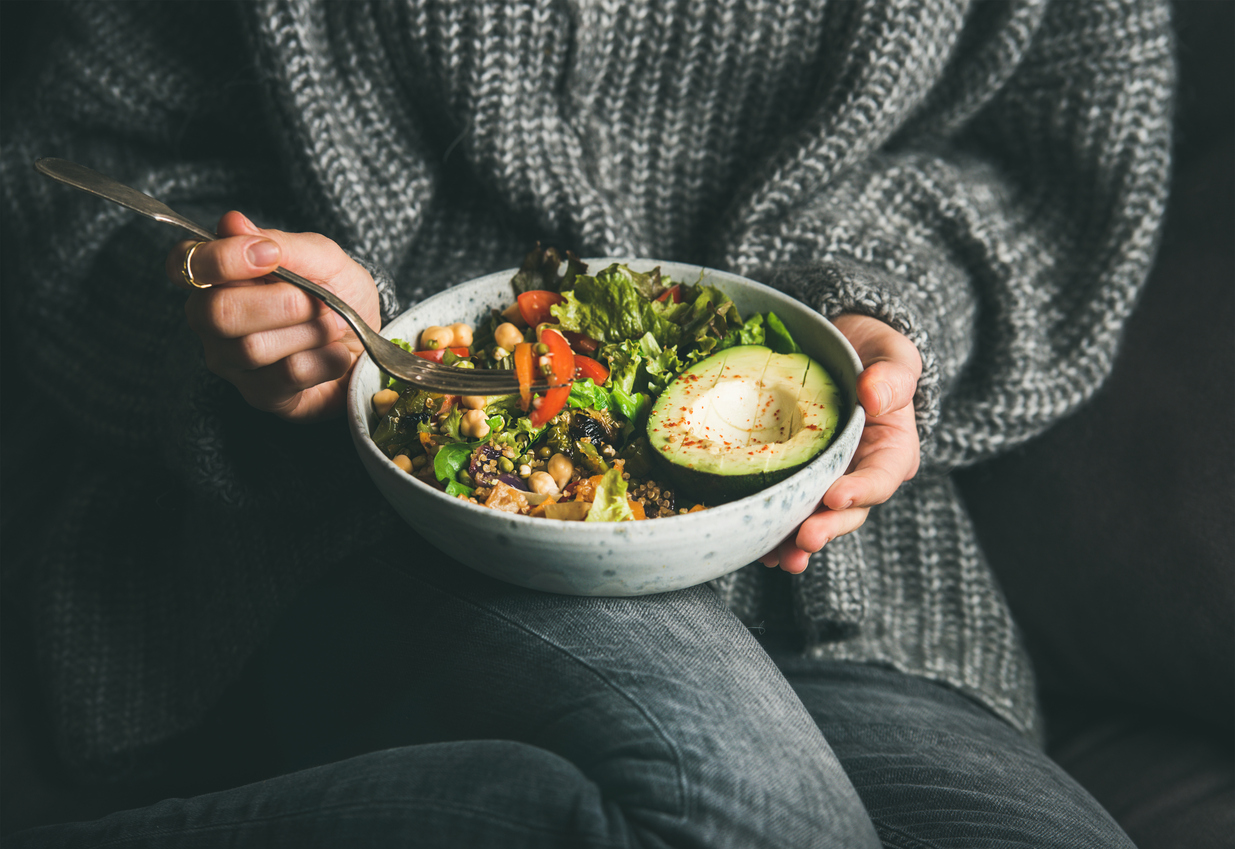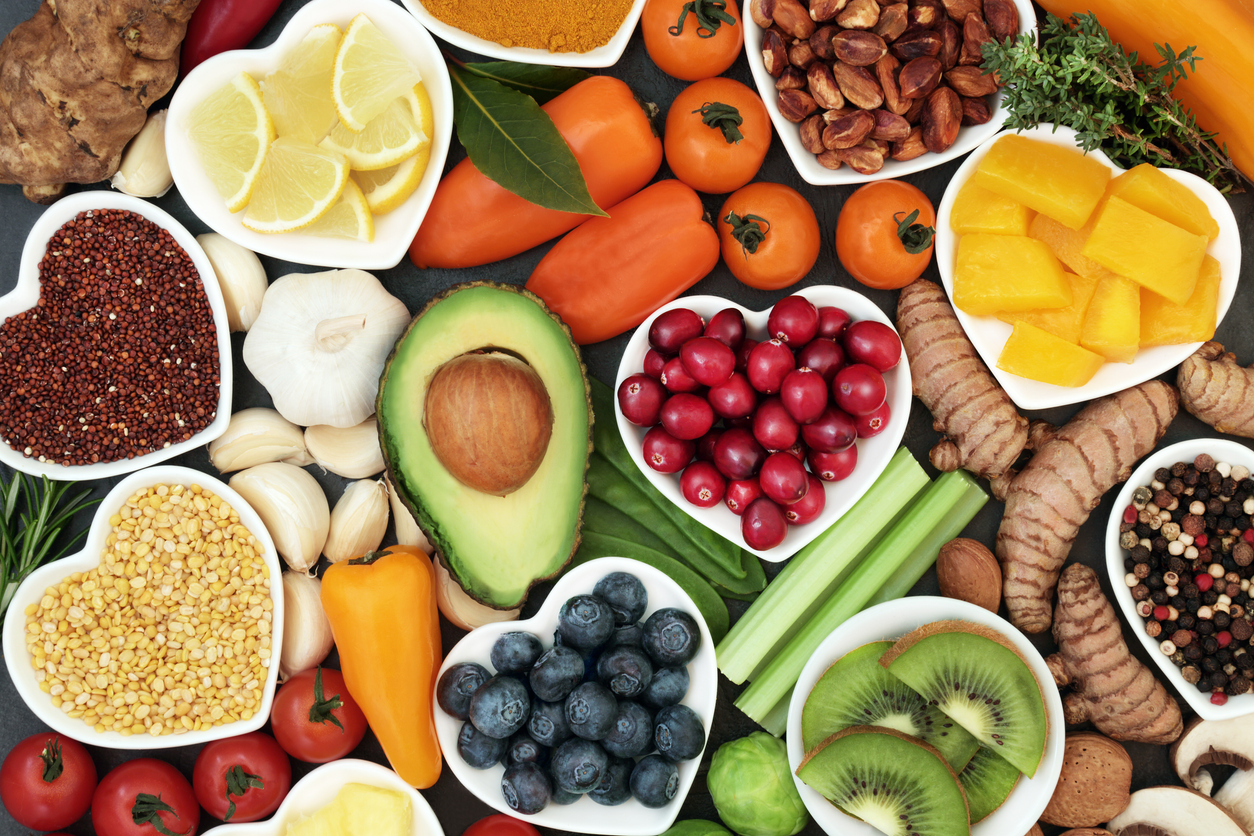The Benefits of a Vegan Diet
Whether you know your tofu from your nutritional yeast or not, it’s near impossible not to have heard a lot about veganism lately. Last year saw huge increases in the amount of plant-based food options available, with supermarkets, fast food chains and all manner of eateries wheeling out veganised versions of food for those who avoid animal products in their diet. And this month alone has seen even more offerings and options made available too!
With a new year upon us, you probably know a person or two who tackled Veganuary in an effort to detox themselves after the festive period. Maybe you’re doing it yourself? Either way, a vegan diet is chockful of benefits, whether you’re doing it for health, ethical or nutritional reasons.
Intrigued about making positive changes to your diet but looking for more inspiration? For those considering a swap to a vegan diet, we’ll run through its potential benefits to help you start the year off in good health.
What is veganism?
Veganism is more than a diet. It is a way of living that abstains, as much as possible, from the use of animal products. Those who follow veganism don’t eat animal-derived foods such as meat (including fish), milk, dairy, eggs and honey. Likewise, they forego any products tested on animals, as well as clothing made from wool, fur, leather and other animal-derived contents.

Why do people go vegan?
As this article will make clear, there are many reasons people choose to go vegan. For some, it’s a natural, logical extension of vegetarianism and reducing animal consumption. Others may be lactose intolerant and choose the diet as a means of avoiding allergies. Then there are the environmental reasons to consider, with veganism curtailing much of the deforestation, greenhouse gas emission and pollution for which factory farming is responsible.
The nutritional and health benefits of veganism
Many people opt for a vegan diet for health reasons, with the plant-based approach offering all sorts of benefits for the body – providing you do it right.
- Vegan diets are richer in certain nutrients
Like any diet, poor planning may result in insufficient intake of essential fats, vitamin B12, iron, calcium, iodine or zinc.
Providing you stay away from fast-food vegan options which are poor in nutrients (much like regular fast food, really), and go for nutrient-rich, fortified foods, it’s possible to gain a higher daily intake of good stuff such as potassium, magnesium, folate and vitamins A, C and E.

- It can help you lose weight
If you’re looking to shed a few pounds after the excesses of the Christmas period, then vegan diets have been shown to be an effective way to lose weight, especially when compared to other diets. Providing you’re following them relatively properly, vegan diets have a natural tendency towards reduced calorie intake, making them a good way to lose weight without having to rigidly adhere to cutting calories.
- It may lower blood sugar levels and improve kidney function
Plant-based diets may reduce the risk of developing type 2 diabetes. Vegans tend to have lower blood sugar levels, higher insulin sensitivity and up to a 50-78% lower risk of developing type 2 diabetes.
One study showed that 43% of participants following a vegan diet were able to reduce their dosage of blood-sugar-lowering medication, compared to only 26% of the group who were following an ADA-recommended diet. Additionally, such diets may be able to reduce the sharp, burning pain caused by diabetes.
- A vegan diet could protect against certain cancers
A number of studies have suggested that a vegan diet can reduce the risks of particular types of cancers. If you’re a fan of legumes such as lentils, beans, peas then good news – you could reduce your risk of colorectal cancer by around 9-18%, while boosting your intake of fresh fruits and veg up to seven portions a day can cut your risk of dying from cancer by up to 15%.

Likewise, avoiding certain animal products and including soy products in your diet could lower the chances of prostate, breast and colon cancers. However, it’s worth noting that these are only suggestions, with the results of these studies only observational in nature. With that said, a diet with plenty of fresh fruit, veg and legumes that limits processed or overcooked meat can be beneficial for all.
- Veganism has been linked to a lower risk of heart disease
These staple vegan foods mentioned above – along with foods rich in fibre – have also been linked to a lower risk of heart disease. Providing you’ve planned out your diet properly, you’ll be consuming a large amount of these foods.
Studies have shown that vegans’ risk of developing high blood pressure may be 75% reduced when compared to a non-vegan diet. Furthermore, vegans may benefit from a 42% lower risk of dying from heart disease. Those who consume plant-based foods are much more effective at reducing blood sugar and cholesterol than people on other diets.
- It can improve your skin too
It’s not just the inner workings of the body that can benefit from a plant-based diet. Skin issues can often be caused by dairy, with milk and cheese consumption contributing to acne in both men and women. If your skin is prone to these kinds of things, then eating more fruit and veg, whilst cutting out dairy, can provide you and your skin with plenty of antioxidants and vitamins for a better, more glowing complexion.
Looking to boost your fruit and veg intake? Try out something from our blending and juicing range for some on-the-go goodness.
We hope this article has inspired you to add more plant-based foods into your diet! Looking for more? You’ll find the full range of Breville products, whatever you’re in need of on our homepage here.
